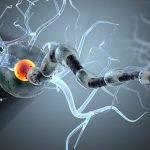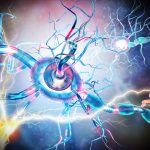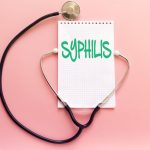Improving Microbiota Diversity May Drastically Reduce Autism Symptoms by up to 50%
Node Smith, ND
A recent research study suggests that changing the gut microbiome in children with autism could reduce the severity of the symptoms they experience.1 This is part of a longer research project, started in 2017.
Gut microbiome in children with autism; research project started in 2017
In 2017, researchers Dae-Wook Kang, PhD., Rose Krajmalnikat-Brown, PhD., and James Adams, PhD. of Arizona State University had previously found that introducing healthy gut microflora led to improvements in both gastrointestinal (GI) and autism symptoms.2
“In our original paper in 2017, we reported an increase in gut diversity together with beneficial bacteria after microbiota transfer therapy (MTT), and after two years, we observed diversity was even higher and the presence of beneficial microbes remained,” explained Dae-Wook Kang PhD., lead author.
Myriad comorbid symptoms and gastrointestinal problems very common in people with Autism
People with autism experience a myriad of comorbid symptoms, and gastrointestinal problems are very common. It seems that the prevalence and severity of gastrointestinal issues correlates with more core “autism-related” behavioral symptoms, such as repetitive behavior, hitting, outbursts, and social disengagement.
The GI symptoms most commonly associated with autism include chronic constipation, diarrhea, and abdominal pain, with gastroesophageal reflux and gastritis also being reported.
Why addressing the microbiome could help improve behavior
The authors of the study state that “in many cases, when you are able to treat those gastrointestinal problems, their behavior improves.”
There are currently no medically approved treatments to address the core symptoms associated with autism, however, research does suggest that addressing the microbiome could help. The research on the connection between the microbiota and neurological and immune function is becoming more and more definitive.
Researchers used a microbiota transplantation process
For this current study, the researchers used a microbiota transplantation process called microbiota transfer therapy (MTT). Eighteen children (ages 7-16 years) were treated for 10 weeks and followed for an additional eight weeks. These participants were all involved in the researcher’s previous study in 2017, which trialed MTT – a type of fecal transplant developed by gastroenterologist Dr. Thomas Borody, which combines antibiotics, bowel cleanses, stomach-acid suppressants, and a fecal microbiota transplant (FMT).
Gastrointestinal symptoms were seen to improve by an average of 58 percent and were consistently maintained following treatment. Autism related symptoms were also seen to improve more after the treatment as well.
In addition to improvements seen in GI abnormalities, the severity of autistic symptoms also reduced by 47 percent by the end of the two-year follow-up, based on the Childhood Autism Rating Scale (CARS).
Eighty-three percent of study participants rated as “severe” on the CARS at the beginning of the original trial. At the two-year follow-up tests, 17 percent were rated as “severe”, 39 percent as “mild to moderate”, and 44 percent were below the ASD diagnostic cut-off scores.
Population size is limited, but authors conclude this research supports beneficial direction in care for autistic children
The researchers do acknowledge the limited population size of the study, but still conclude that this research does support a highly beneficial direction that could become mainstream in the care for autistic children.
 Node Smith, ND, is a naturopathic physician in Humboldt, Saskatchewan and associate editor and continuing education director for NDNR. His mission is serving relationships that support the process of transformation, and that ultimately lead to healthier people, businesses and communities. His primary therapeutic tools include counselling, homeopathy, diet and the use of cold water combined with exercise. Node considers health to be a reflection of the relationships a person or a business has with themselves, with God and with those around them. In order to cure disease and to heal, these relationships must be specifically considered. Node has worked intimately with many groups and organizations within the naturopathic profession, and helped found the non-profit, Association for Naturopathic Revitalization (ANR), which works to promote and facilitate experiential education in vitalism.
Node Smith, ND, is a naturopathic physician in Humboldt, Saskatchewan and associate editor and continuing education director for NDNR. His mission is serving relationships that support the process of transformation, and that ultimately lead to healthier people, businesses and communities. His primary therapeutic tools include counselling, homeopathy, diet and the use of cold water combined with exercise. Node considers health to be a reflection of the relationships a person or a business has with themselves, with God and with those around them. In order to cure disease and to heal, these relationships must be specifically considered. Node has worked intimately with many groups and organizations within the naturopathic profession, and helped found the non-profit, Association for Naturopathic Revitalization (ANR), which works to promote and facilitate experiential education in vitalism.
Node Smith graduated from the National University of Natural Medicine (NUNM) in 2017, and is currently licensed as a naturopathic physician in Oregon and working towards becoming licensed in Saskatchewan, Canada as well.









